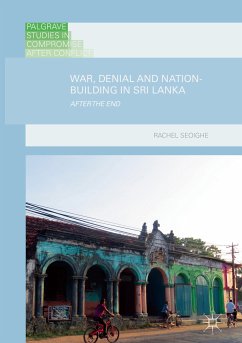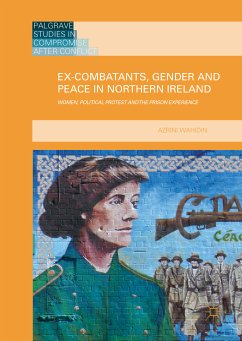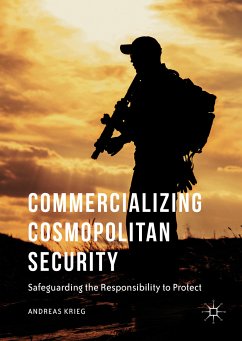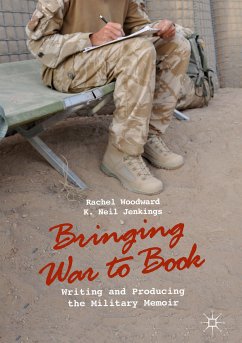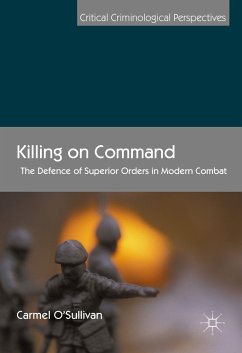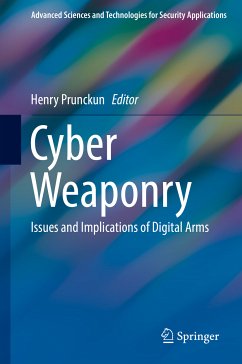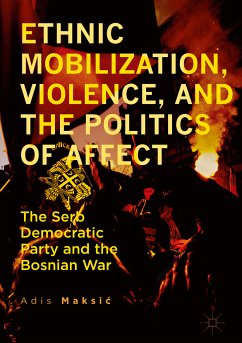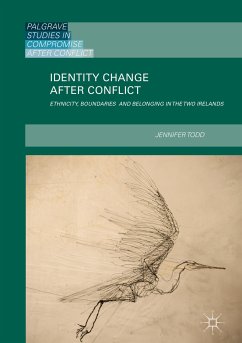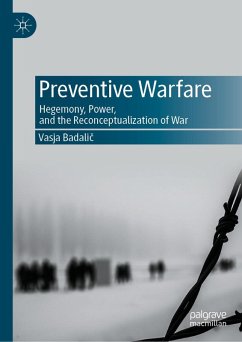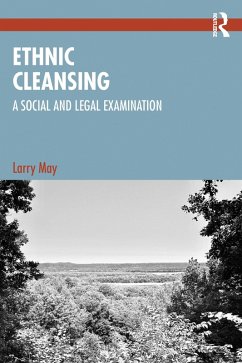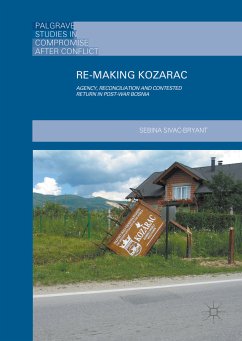
Re-Making Kozarac (eBook, PDF)
Agency, Reconciliation and Contested Return in Post-War Bosnia
Versandkostenfrei!
Sofort per Download lieferbar
40,95 €
inkl. MwSt.
Weitere Ausgaben:

PAYBACK Punkte
20 °P sammeln!
This book explores agency, reconciliation and minority return within the context of ethnic cleansing in Bosnia. It focuses on a community in North-West Bosnia, which successfully reversed the worst episode of ethnic cleansing prior to Srebrenica by fighting for return, and then establishing one of the only successful examples of contested minority return in the town of Kozarac. The book is a result of a longitudinal, decade-long study of a group of people who discovered a remarkable level of agency and resilience, largely without external support, and despite many of the people and institution...
This book explores agency, reconciliation and minority return within the context of ethnic cleansing in Bosnia. It focuses on a community in North-West Bosnia, which successfully reversed the worst episode of ethnic cleansing prior to Srebrenica by fighting for return, and then establishing one of the only successful examples of contested minority return in the town of Kozarac. The book is a result of a longitudinal, decade-long study of a group of people who discovered a remarkable level of agency and resilience, largely without external support, and despite many of the people and institutions who were responsible for their violent expulsion remaining in place.
Re-Making Kozarac considers how a community's traumatic experiences were utilised as a motivational vehicle for return, and contrasts their pragmatic approach to local compromise with the ill-informed and largely unsuccessful international projects that try to cast them as powerless victims. Importantly, the book offers critical reflections on the interventions of the trauma and reconciliation industries, which can be more harmful than is currently realised. It will be of great interest to scholars of criminology, anthropology and international relations.
Dieser Download kann aus rechtlichen Gründen nur mit Rechnungsadresse in A, B, BG, CY, CZ, D, DK, EW, E, FIN, F, GR, HR, H, IRL, I, LT, L, LR, M, NL, PL, P, R, S, SLO, SK ausgeliefert werden.



